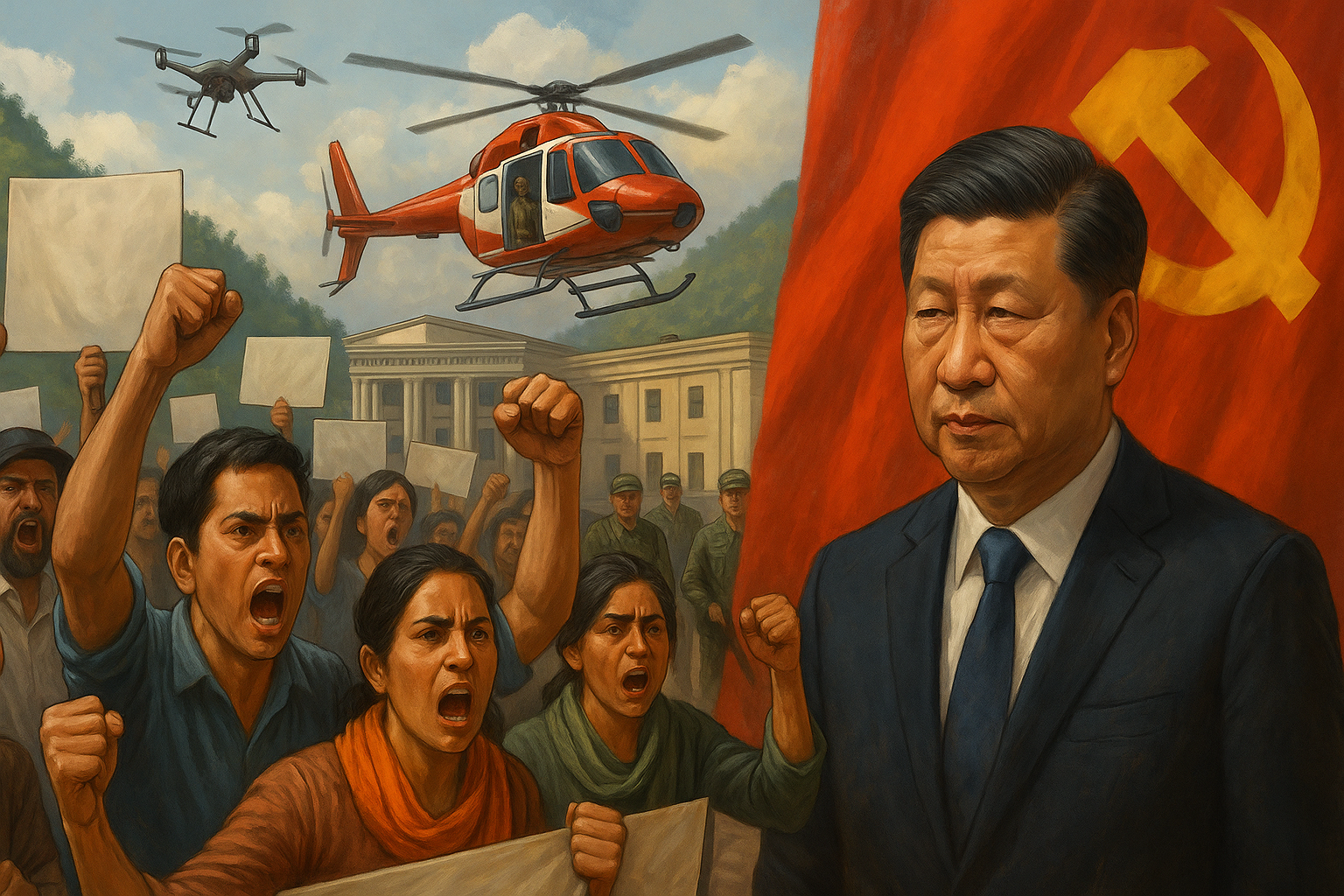Outrage as China Detains Nepal’s Rescue Helicopter During Deadly Emergency
China Detains Nepali Rescue Helicopter, Sends Drones Over Border—Outrage in Kathmandu Grows

Tensions between Nepal and China have escalated dramatically after revelations that Chinese military forces detained a Nepali Army rescue helicopter near the Tibetan border during emergency flood-relief operations on July 8, 2025. The detention, lasting almost 90 critical minutes, significantly hampered rescue efforts amid devastating floods that have claimed nine lives and left over two dozen people missing.
The catastrophic flood, attributed by international experts to a suspected glacial lake outburst in Tibet, obliterated the strategically crucial Maitri Bridge at Rasuwagadhi, disrupting Nepal-China trade and causing substantial damage to the Rasuwagadhi Hydropower Project. With survivors still desperately waiting for aid, the helicopter detention incident has sparked fierce criticism across Nepal, casting China’s actions as a blatant disregard for humanitarian principles.
Yet, this troubling episode is not isolated. In recent developments, local residents and Nepalese security sources have expressed alarm over increased Chinese drone activity along the border area near Rasuwagadhi. Surveillance drones, reportedly launched by Chinese authorities, have frequently flown into Nepali territory, raising serious questions about sovereignty, territorial integrity, and Beijing’s true intentions behind this aggressive surveillance.
Nepal's officials have openly condemned China for its systematic refusal to share critical real-time hydrological data—an action seen as a deliberate obstruction of Nepal’s early-warning capabilities. Such withholding of information has significantly compromised disaster preparedness, intensifying the vulnerability of communities downstream. This negligence became tragically apparent during the recent flood disaster, leaving villagers without sufficient warning and unable to evacuate in time.
Chinese Ambassador Chen Song, whose controversial interventions have previously sparked widespread anger in Nepal, remains conspicuously silent on the current crisis. His silence contrasts sharply with his history of provocative public statements, which previously drew accusations of meddling in Nepali affairs. Ambassador Chen’s reluctance to address this severe diplomatic incident has been criticized as further evidence of China’s dismissive attitude toward Nepali lives and sovereignty.
The helicopter detention has provoked fierce reactions in Kathmandu, with political and civil society groups demanding explanations and accountability from Beijing. Nepalese citizens and media commentators have labeled China's actions as deliberately callous, questioning the sincerity behind Beijing's promises of friendship and cooperation. Experts warn that unless China commits to transparent and collaborative data sharing, Nepal's border communities will continue to suffer disproportionately from future Himalayan disasters intensified by climate change.
Nepal’s Foreign Ministry, grappling with mounting domestic pressure, has issued a stern statement calling for urgent reforms in transboundary water cooperation. However, observers remain skeptical about whether Beijing will genuinely change its stance or continue to exert pressure through strategic silence and surveillance.
As relations strain further, affected communities in Rasuwagadhi remain trapped between geopolitical tensions and environmental threats, their immediate needs overshadowed by diplomatic disputes. Amid unanswered questions and mounting anger toward China’s increasingly aggressive border behavior, Nepal finds itself compelled to reassess its approach to its powerful neighbor.
This latest incident underscores an unsettling reality: can Nepal afford to trust a neighbor who detains rescue missions, surveils its citizens, and refuses lifesaving data during a crisis? The path forward is unclear, but what is evident is the urgent need for Nepal to secure its autonomy, safety, and dignity in the face of a growing regional power seemingly indifferent to human suffering.
